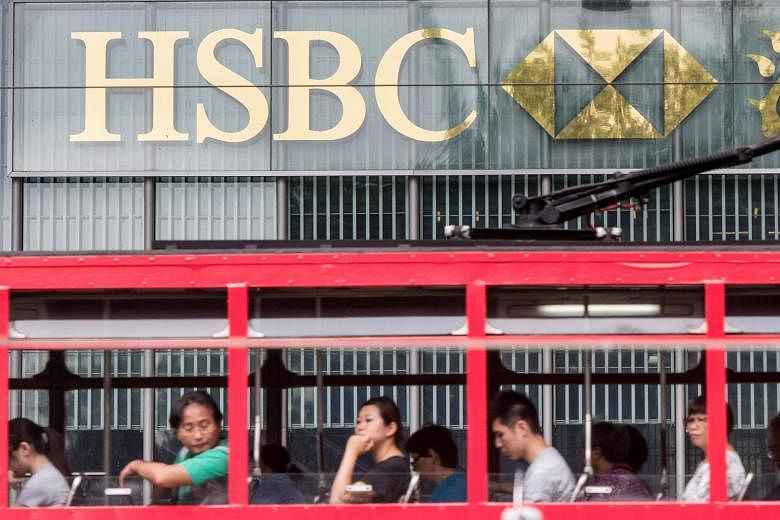HONG KONG/LONDON • HSBC yesterday said its first-half profit tumbled by 29 per cent, hit by slowing growth in its home markets in Britain and Hong Kong, but Europe's biggest bank still managed to cheer investors by announcing plans to buy back up to US$2.5 billion (S$3.6 billion) of its shares.
The lender's shares rose as much as 1.9 per cent after the buy-back announcement took the sting out of a drop in January-June pre-tax profit to US$9.7 billion. Second-quarter profit fell 45 per cent to US$3.61 billion from a year earlier.
Analysts joined investors in welcoming the buy-back, along with a commitment from the bank, based in London and Hong Kong, to maintain current dividend levels for the foreseeable future, despite gloom in its key markets.
HSBC shares in Hong Kong traded up 1.8 per cent at HK$51.70, rebounding from a fall of 1.7 per cent prior to the announcements.
HSBC warned it had decided to "remove a timetable" for reaching its targeted return on equity in excess of 10 per cent by the end of next year. Return on equity at end-June was 7.4 per cent.
It also said it was committed to sustaining annual ordinary dividend for the year at current levels for the foreseeable future. That commitment, along with the buy-back, was described by Bernstein analysts as positive for the bank's shares in the short term.
-
IN NUMBERS
-
-29%
Fall in HSBC's first-half profit.
-45%
Fall in Q2 profit to US$3.61 billion (S$4.8 billion) from a year earlier.
1.9%
Rise in HSBC's shares after the buy-back plans were announced.
However, group chief executive Stuart Gulliver said HSBC had removed the word "progressive" from its guidance on dividend payout plans, reflecting tougher market conditions. " 'Progressive' was interpreted by everyone as meaning it is going to go up every quarter notwithstanding what is happening in the world, so what we are saying is we are committed to sustain the dividend at the current level."
HSBC is contending with slowing economic growth in China and the prospect of a recession in Britain, amid a programme to cut thousands of jobs and redeploy as much as US$150 billion of assets to Asia.
Mr Gulliver, 57, and chairman Douglas Flint, 61, the longest-serving pairing at a big European bank, are nearing the end of their terms; Mr Flint is preparing to step down next year, with his replacement starting the search for a new CEO.
Mr Gulliver said the buy-back - after the disposal of HSBC's Brazil unit last month in a US$5.2 billion deal - "demonstrated the strength and flexibility" of its balance sheet.
Since 2011, HSBC has slashed more than 87,000 jobs, exited at least 80 businesses and reduced its vast global footprint to 71 countries and territories from 88.
Alongside most other European banks, executives have been struggling to boost profitability in the face of record-low interest rates, misconduct fines and rising regulatory costs.
REUTERS, BLOOMBERG

